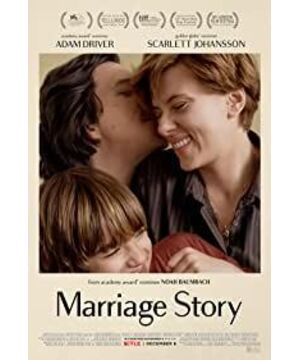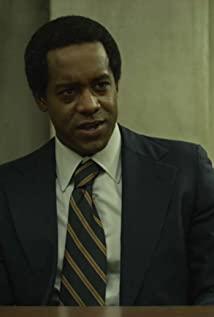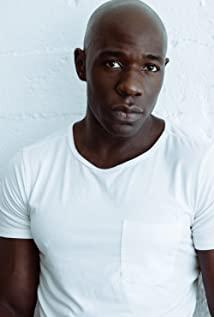Divorce is labor pain, marriage is long pain, long pain is worse than short pain.
It's right for the heroine to choose a lawyer to cut "chaos" (see below for the haircut), even if there is still goodwill and even love, even if she still appreciates and affirms the man's talent, even if she will still order food for him during the mediation lunch time. His habit, even after the showdown knows that the other party is cheating, is still just fingering cheating to retaliate and vent (also to rebel against the traditional way of having sex), even when the man repairs the door and closes the door, the two sides are still reluctant to part. This is the difference between the sexes, and once women make up their minds to withdraw from a relationship, they tend not to drag their feet around.
The difference metaphor between New York and LA lies not only in the difference in artistic pursuit but also in the transformation of discourse dominance; the knife in the key ring is a metaphor for marriage. There is no fault in itself, after all, it is the wrong people and methods that cause harm.
In a lawsuit that has already been decided, in fact, it is good that my male protagonist, as a father, is willing to fight for custody at all costs. The quarrel scene is naturally a climax, the kind that made me cry, I was surprised that the man cursed the heroine so viciously at the end and could touch his back to express his forgiveness. If this film does not try to portray either party as the wrong party, then these evils will be directed to the two lawyers, but even so, I still say to the scene where the heroine is trained to deal with the censor and shoot the female lawyer from her perspective. The monologue expresses his strong agreement, and never fail to overcorrect for fear of overcorrecting.
Divorce may not be the only way to get married, but it must be a necessary component of marriage:
Is marriage hell? Is it the marriage that separates people who once loved each other? The essence of marriage is from respect and coordination to running-in consumption, compromise and loss? Why did the heroine refuse to read the letter to the therapist and instead confide in the lawyer? Why did the male protagonist give up the old lawyer who empathically hugged him after four marriages and three divorces and sought the least loss for him when he was in court? The female protagonist's sister is unwilling to be a server, and her mother wears sunglasses indoors to send letters to the enemy. Perhaps it is not the outside world but themselves that has contributed to the deterioration of the situation?
Marriage may not be an abyss, but just a mirror. In the beginning, the husband and wife stood on the same side and looked at each other. After gradually not treating each other as an independent person, they went to the back of the mirror and saw only themselves, their selfishness, arrogance, indifference, hypocrisy, Mistakenly thought it was the abyss thrown from the opposite side, and even blamed the mirror itself for being the abyss.
Therefore, in this sense, divorce is not an endgame, but is precisely the fragment with the highest reflectivity in front of the broken mirror of marriage. When narrating the marriage story, the director only captured the most straightforward fragments. In fact, people who regard divorce as the end of their marriage often turn themselves into the trap. Just like playing the game of Monopoly in the play, the more they value the gains and losses, the worse they will lose.
The marriage story is not only in the notes at the beginning and end, but the entire length of it. Divorce is not the opposite of marriage, it is a part of marriage, it is the sword of Damocles, alerting both parties in the marriage relationship every moment, it is in a state of unresolved.
Finally, the old lawyer's interrupted "Roman trip and the barber" joke is indeed a bit long...:
A woman was getting a haircut prior to a trip to Rome. She mentioned the trip to the hairdresser who responded, "Rome? Why would anyone want to go there? It's crowded & dirty and full of Italians. You're crazy to go to Rome. So, how are you getting there?" "We're taking Delta," was the reply. "We got a great rate!" "Delta?" exclaimed the hairdresser. "That's a terrible airline. Their planes are old, their flight attendants are ugly, and they're always late. So, where are you staying in Rome?" "We'll be at the downtown International Marriott." "That dump! That's the worst hotel in the city. The rooms are small, the service is slow and they're overpriced. So, whatcha doing when you get there?" "We're going to go to see the Vatican and we hope to see the Pope." "That's rich," laughed the hairdresser. "You and a million other people trying to see him. He'll look the size of an ant. Boy, good luck on this lousy trip of yours. You're going to need it."
A month later, the woman again came in for her regular haircut. The hairdresser asked her about her trip to Rome. "It was wonderful," explained the woman, "not only were we on time in one of Delta's brand new planes, but it was overbooked and they bumped us up to first class. The food and wine were wonderful, and I had a beautiful 28 year old steward who waited on me hand and foot. And the hotel-it was great! They'd just finished a $25 million remodeling job and now it's the finest hotel in the city. They, too, were overbooked, so they apologized and gave us the presidential suite at no extra charge!" "Well," muttered the hairdresser, "I know you didn't t get to see the pope." "Actually, we were quite lucky, for as we toured the Vatican,a Swiss Guard tapped me on the shoulder and explained that the pope likes to personally meet some of the visitors, and if I'd be so kind as to step into his private room and wait the pope would personally greet me. Sure enough, five minutes later the pope walked through the door and shook my hand! I knelt down as he spoke a few words to me." "Really?" asked the hairdresser. "What'd he say?" He said, "Where'd you get the terrible haircut?He said, "Where'd you get the terrible haircut?He said, "Where'd you get the terrible haircut?
(source: http://www.jokes4us.com/peoplejokes/hairdresserjokes.html )
So far, the meaning of this joke is obvious, because the male protagonist's surname Barber (which is also specially featured in the lawsuit) is exactly what the barber means in English. How do you view this dispute? And the subsequent development kept hitting him in the face, forcing him to face up to his overgrown marriage like a bad haircut punctuated by the Pope. And this also explains why the director added the episode of haircut at the beginning and later (it can even be extended to the "shoelaces" tied at the end), one is the embodiment of warmth, the other is echoing this important fable, and the director prevented the second half Duan's spiller skillfully avoids tediousness and deliberateness, leaving the suspense to linger and the fun to discover on its own.
View more about Marriage Story reviews











